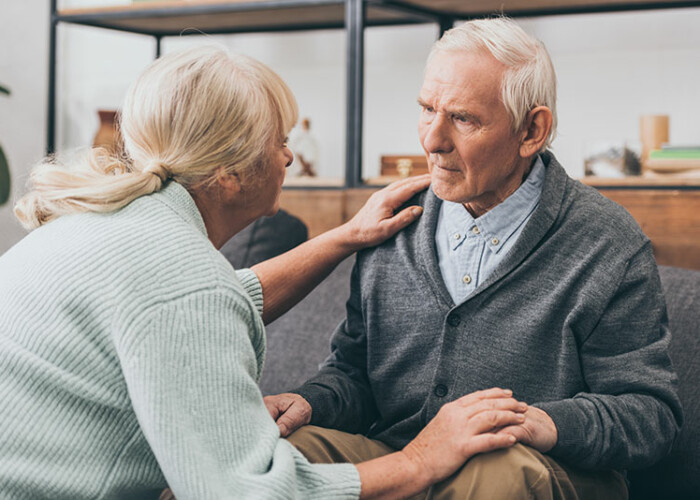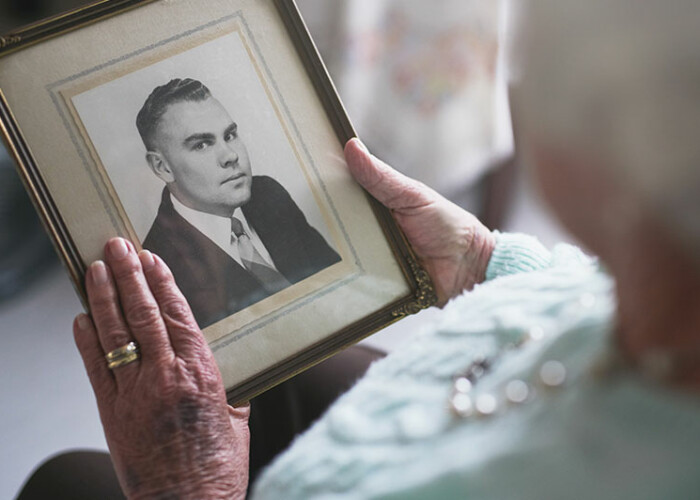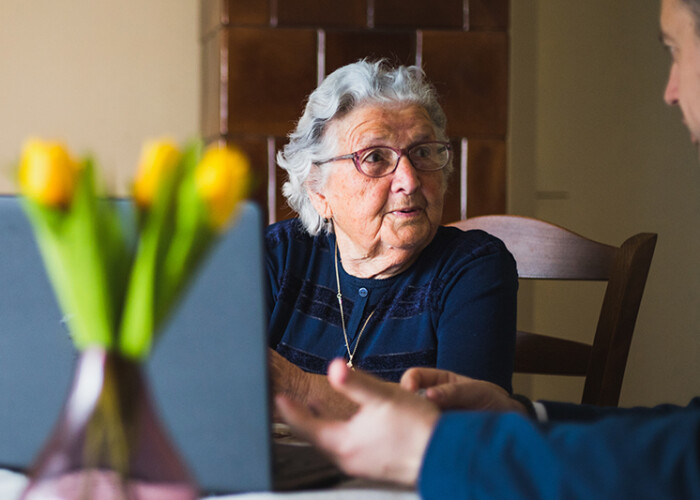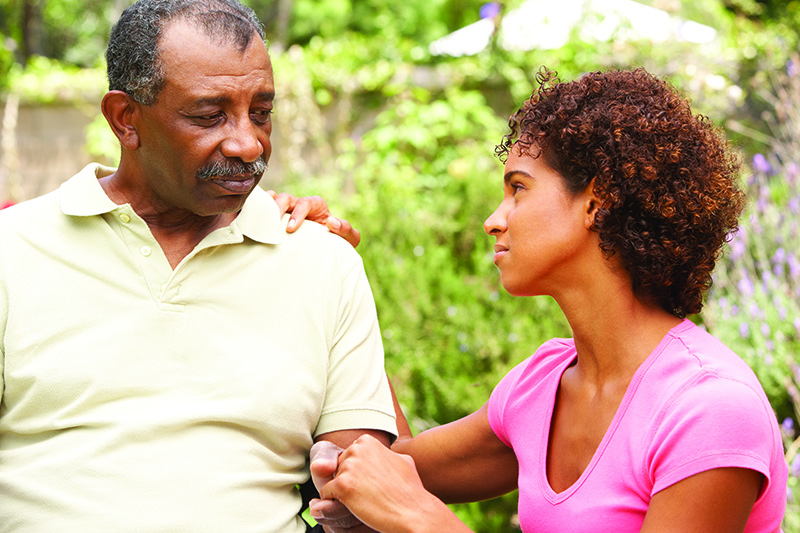Depression in Seniors
What to Do When a Parent Refuses Care
When a parent refuses care, these tips can help you come to a resolution.
Let’s say you’re starting to notice some warning signs that cause you to worry about Dad’s ability to continue to take care of himself. Perhaps he’s struggling to maintain the home the way he always has. Or maybe he had a close call while driving that could have caused injury to himself or another person. Maybe he just seems more disoriented lately. Whatever the reason, you’ve decided to talk with him about home care services. The problem is, he refuses to even entertain the idea. What are you to do when a parent refuses care that they desperately need?
If you’re at an impasse on how to proceed, these ideas can be helpful.
Let him know you’re in this together. Digging in your heels and … Read More »
The Health Concerns That Could Be Causing Chronic Negativity in an Older Loved One
If you’re noticing chronic negativity in an older loved one, there may be a medical condition to blame.
We all have good days and bad days, and we are all entitled to a bit of crankiness or negative thinking every now and then. If you are noticing a pattern of chronic negativity in an older loved one, however, it is worthwhile to explore whether a health problem might be the culprit.
Listed below are several reasons for persistent negativity, and how you can help.
Pain. A recent study revealed that participants who were enduring chronic pain reported a rise in negative moods, including fatigue, anger, tension, depression, anxiety, and more. It is essential to discuss any of these mood changes with the physician, as these kinds of mood changes actually impact the effectiveness of pain management treatments.
Urinary tract infections. … Read More »
Broken Heart Syndrome: How to Help a Loved One Who Is Grieving
It’s not easy to know how to help a loved one who is grieving, but these tips are a great place to start.
In his documentary about grief, George Shelley uses an analogy of glitter. Toss a handful of glitter into the air, and it’s going to settle into all the cracks and crevices of the room, impossible to fully sweep up and remove. Those who have lost a loved one can relate. Yet in certain instances, grief could be so overwhelming that it could result in a serious and aptly named condition: broken heart syndrome.
Broken heart syndrome is a very real physical condition from the intense stress experienced in certain types of grief (such as one spouse losing the other after decades of marriage). The medical term is takotsubo cardiomyopathy, a temporary enlargement of the heart … Read More »
Navigating the Unique Challenges of Older Adults in the LGBTQ+ Community
Older adults in the LGBTQ+ community face a number of hurdles that we all need to understand.
When it comes to growing older, the experiences of seniors are as diverse as the colors of the rainbow. Within this spectrum, older adults in the LGBTQ+ community often face unique challenges that warrant our attention and understanding. As a leading home care provider in Novato and the surrounding areas, we know that fostering inclusivity is crucial for providing support to all members of our community. It begins by understanding some of the hurdles specific to the LGBTQ+ population that need to be overcome.
Isolation and Social Stigma:
One of the key challenges confronting LGBTQ+ seniors is the potential for isolation and the enduring social stigma that has persisted throughout their lives. Many individuals from this community grew up in an … Read More »
What to Do When an Older Adult Refuses to Pay for Care
Many of today’s older adults grew up during the Great Depression. They lived through a time when the country was cutting corners and pinching pennies. Frugality was embedded in many of them at an early age and quite often remains firmly in place for life.
So what can you do when an older adult refuses to pay for care, even though they clearly are in need of care at home and have the financial ability to pay for the care?
First, empathize. Understand that the person’s perspective is valid and determined by past life experiences. If the older adult seems to be resistant to the idea of spending money for the care they need, remind yourself of the emotions behind the behaviors. An additional layer of difficulty may be in simply accepting the need for care altogether, something that … Read More »
The Harm in Talking to the Elderly Like Babies
We all need to understand how disrespectful talking to the elderly like babies is, and to avoid this common practice.
Watch what happens at the next family members get together when a new mother places her baby in someone’s arms. The person is likely to shift instantly into baby mode: a sing-song, high-pitched voice, exaggerated facial expressions, and overly-simplified speech. Of course, this is quite normal and actually beneficial to an infant’s growing brain. Sadly though, it is also quite common to hear people talking to the elderly like babies too. This can be so harmful to the elderly, that there’s a word to describe it: elderspeak.
A recent research study by Susan Kemper, a professor specializing in gerontology at the University of Kansas, matched senior listeners with younger speakers. Even with the seniors’ instructions just to listen … Read More »
Concerned It Might Be Dementia? Here’s How to Bring It Up to the Doctor.
You may be afraid to talk with the doctor if you’re concerned it might be dementia, but these tips can help.
Distress. Embarrassment. Fear. If you’re concerned it might be dementia, the feelings surrounding a potential diagnosis can force you to keep your suspicions to yourself. An AARP survey peeled away some of the layers of emotion to find the reason – namely, worry over losing independence and becoming a burden to others.
While there is some truth to these worries, there are also some misconceptions fueling them. As an example, roughly 1/2 of the participants, who were adults age 40 and over, believe they’re likely to get dementia as they grow older. The truth is that just over 10% of older adults over age 65 are identified as having Alzheimer’s disease.
Because of this, it’s critical for … Read More »
What Can You Do When Family Members Refuse to Help With Senior Care?
If your family members refuse to help with senior care for a loved one, there are effective ways to get the help you need!
If you find yourself handling all of the care responsibilities for an aging parent while your siblings distance themselves from offering help, you’re not alone. In fact, as many as one out of every two family caregivers are taking care of an aging loved one on their own, according to a recent report from AARP. What can you do when family members refuse to help with senior care?
There are several reasons why siblings may shy away from supporting you in the care you’re providing. We’ve compiled the most common, along with what you can do to remedy the situation.
They don’t realize there’s a need for help. It may very well be that from … Read More »
Understanding Parkinson’s Fatigue: It Feels Like “Walking Through Molasses”
Parkinson’s fatigue affects a person cognitively, physically, and emotionally.
Parkinson’s fatigue affects as many as one in two people with the disease, but until recently, we haven’t fully understood just how debilitating this condition actually is. A study is providing us with the insight we need to comprehend the impact of Parkinson’s fatigue, and what we can do to help someone experiencing it. Led by Duke University’s Sneha Mantri, MD, the goal of the research was to gain firsthand patient insights to know how to better address this challenging condition.
Three distinct areas of fatigue were investigated in the study: physical, emotional, and cognitive. Participants were asked to describe their level of fatigue, and the terms they used were quite revealing, including feeling unmotivated, overwhelmed, isolated, lacking energy, and as if they were “walking through molasses.”
Parkinson’s fatigue … Read More »
The Alarming Link Between Isolation and Alzheimer’s Progression
An attractive mature African American woman asks a question by raising her hand in class.
In the past several years since COVID-19 became a household term, seniors, who are most vulnerable to severe complications from the virus, became more isolated in order to stay safe. And while we already were aware that there are health risks connected with loneliness and isolation, we’re now beginning to realize another serious concern: how isolation and Alzheimer’s progression are linked.
Since people with Alzheimer’s and other forms of dementia may struggle to understand and follow safety precautions, like wearing face coverings, reporting symptoms, and social distancing, isolation for these individuals became especially critical. But while maintaining these seniors’ physical health was the top priority, it’s also important to pay attention to their emotional wellbeing, which can also be negatively impacted without sufficient … Read More »
















